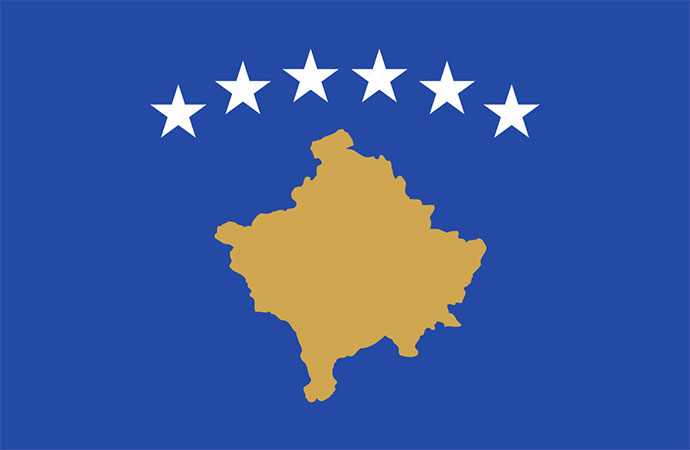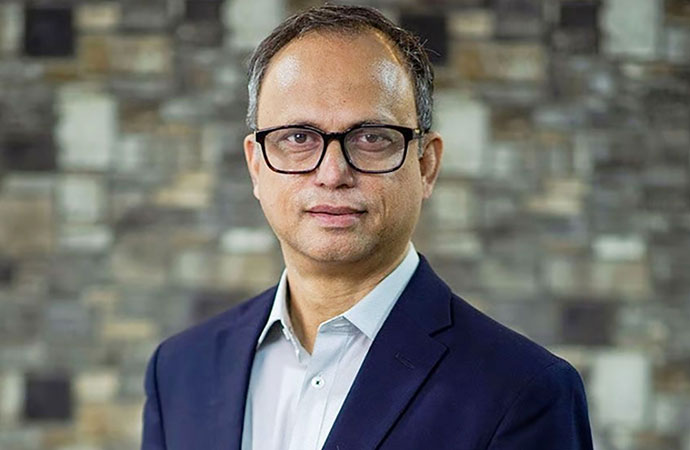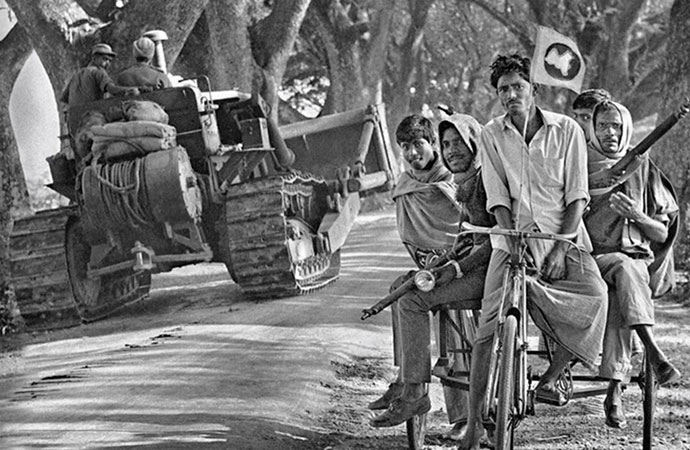Column

Flag of Kosovo
The Republic of Kosovo is the youngest nation in Europe. Since declaring independence in 2008, Kosovo has made the recognition of its statehood a priority of its foreign policy. Bangladesh recognized Kosovo on 27 February 2017. Kosovo's embassy in Dhaka is currently the only diplomatic mission in Bangladesh from the former Yugoslavia, as well as the only embassy of this landlocked southeast European nation in South Asia. Kosovo seeks to secure diplomatic recognition from other states in South Asia, including India, Nepal, Sri Lanka and Bhutan. Kosovo has already been recognized by Pakistan, the Maldives and Afghanistan.
In 2020, Kosovo and Serbia agreed to economic normalization under a deal negotiated by U.S. President Donald Trump and signed at the White House. Kosovo and Serbia have bilateral agreements guaranteeing freedom of movement, an international telephone code, customs cooperation, energy cooperation, mutual recognition of university diplomas, return of real estate registers, judicial cooperation, and regional engagement. Both Kosovo and Serbia share common aspirations for membership of the European Union.
Kosovo is formally recognized by 117 countries. Kosovo is a member of 180 international organizations. The Constitution of Kosovo was adopted in 2008 and ensures the direct applicability of international law in the country's legal system. International human rights treaties are directly enforceable in Kosovo's courts and can supersede national laws. Kosovo has made notable democratic progress and its democratic consolidation is comparable to other post-Yugoslav states. According to Freedom House, "Kosovo holds credible and relatively well-administered elections. Many public institutions are undermined by entrenched corruption, though there are signs that a new generation of politicians are moving to confront corrupt practices through judicial and administrative reforms".
Kosovo presents a geopolitical opportunity. As the Indian government battles the Trump administration over tariffs, normalizing ties with Kosovo can be a bargaining chip for a trade agreement between India and the United States. India's traditional alliances with Serbia and Russia are unlikely to be affected by normalization with Kosovo given the increasing engagement between Kosovo and Serbia. Kosovo is a multiethnic, stable and functional state which can be an ally for South Asian nations in southeastern Europe.
Kosovo's ties with Bangladesh are rooted in the deployment of UN peacekeepers and the operations of Grameen. Like Bangladesh, Kosovo was born out of a war which saw ethnic cleansing, war crimes and crimes against humanity affecting its people. Kosovo has been widely acknowledged as a sui generis case of asserting the remedial right to self-determination, which was the situation with Bangladesh in 1971 when East Pakistan achieved independence. Both Bangladesh and Kosovo adopted secular democratic constitutions at birth.
Kosovo was historically part of the cosmopolitan Ottoman Empire until the First Balkan War. It has an ethnic Albanian majority population who are mostly Muslim. Kosovo became an autonomous and constituent unit of the former Socialist Federal Republic of Yugoslavia. The autonomous province of Kosovo had its own constitution, presidency, assembly, government, police, territorial defense, constitutional court, intelligence service, central bank, and secretariat for international relations. Kosovo's autonomy was violently revoked and destroyed in 1989 during the breakup of the former Yugoslavia which started after the death of Marshal Tito. Albanians were purged from all institutions of government. In Kosovo's capital, native Albanians were removed from the University of Pristina. An estimated 1.5 million Albanians were forced to leave their homes as Serb military forces and militias enforced a discriminatory regime under a police state which targeted Albanian workers, dissidents and patriots.
Ibrahim Rugova, the leader of the Muslim Albanian population, began a nonviolent movement to protest the abrogation of Kosovo's constitutional autonomy by Yugoslav dictator Slobodan Milosevic. Rugova established a parallel government which provided social services to the Albanians, including health and education. Milosevic and the Serb minority in Kosovo detested the Albanian majority in an area contested between the Serbs and Ottomans since 1389. Kosovo became home to an Albanian majority population due to the Treaty of London after the First Balkan War which partitioned Ottoman, Serb and Albanian territories.
Albanians constitute the native and majority population of Kosovo. The systematic purge of Albanians triggered the Kosovo War which raged for ten years. The Kosovo Liberation Army (KLA) led an armed uprising against Serb forces. NATO intervened in 1999 and a United Nations interim administration was established by the Security Council. The UN set up the Provisional Institutions for Self-Government in Kosovo as a transitional government.
UN Security Council Resolution 1244 authorized the interim administration to oversee a process for determining Kosovo's future status. The Ahtisaari Plan outlined by the UN Secretary General's Special Envoy and former Finnish President Martii Ahtisaari proposed independence for Kosovo after the territory met several requirements, including dialogue with Serbia. The democratically-elected representatives of Kosovo gathered to proclaim the country's Declaration of Independence on 17 February 2008. In 2010, an advisory opinion from the International Court of Justice found that the Kosovo Declaration of Independence did not violate general international law nor the mandate of the UN interim administration.
Kosovo's contemporary constitution can provide a window into the application of international law for the lives of everyday people. The remaining states in South Asia which are yet to recognize Kosovo should proceed to establish diplomatic relations with Pristina. Recognizing Kosovo would be a tribute to the hardship, struggle and non-violent resistance by the Kosovar people in their movement for freedom and independence.
Umran Chowdhury is Assistant Editor of the Dhaka Courier and a Research Associate at the Cosmos Foundation and Bay of Bengal Institute.

























Leave a Comment
Recent Posts
Religion and Politics: A Toxic ...
At Dhaka University, cafeteria workers have been told not to wear shor ...
Enayetullah Khan joins AsiaNet ...
AsiaNet’s annual board meeting and forum was held in Singapore, ...
In a New York minute
Many leaders back a UN call to address challenges to ..
Defaulted loans at Non-Bank Financial Institutions ( ..
How the late Zubeen Garg embodied cultural affinitie ..